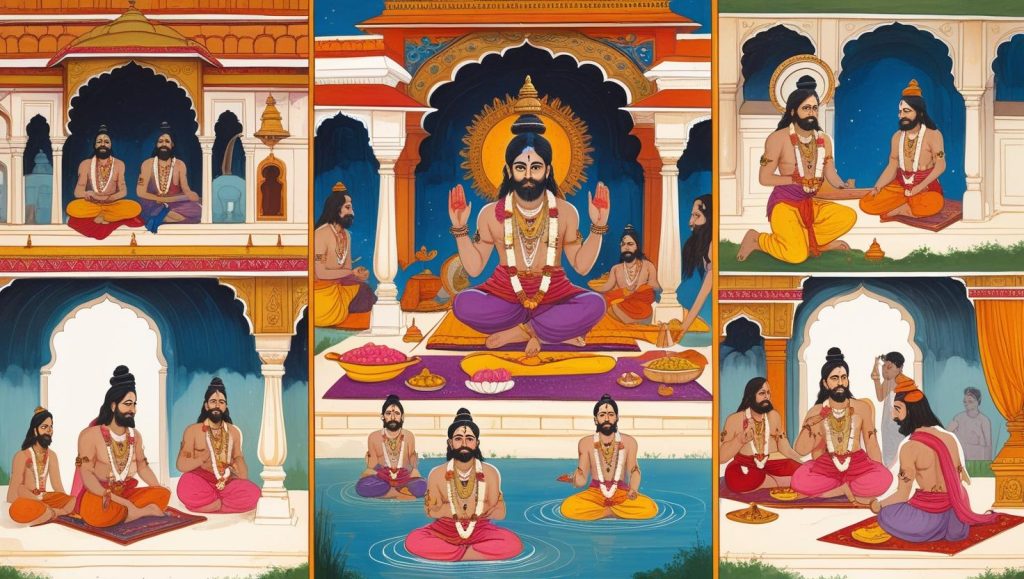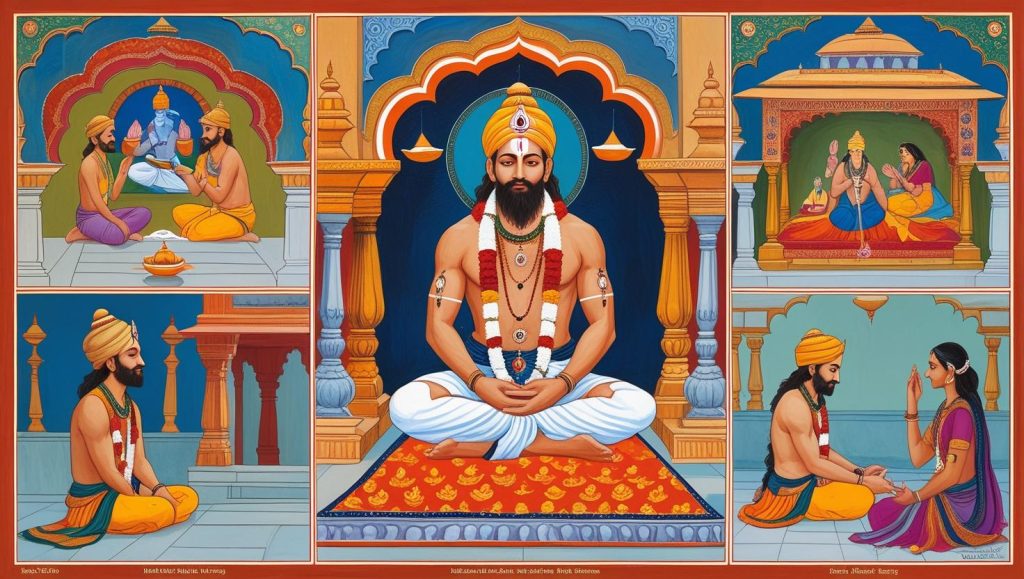Introduction
Bhagwan Rishabhdev, also known as Adinath, holds a special place in Jainism as the very first Tirthankar of the current Avasarpini (time cycle). His life, as documented in ancient Jain scriptures, reflects the spiritual, cultural, and ethical foundations of the Jain faith. These revered texts blend history, philosophy, and devotion, preserving his teachings for generations.

Key Jain Scriptures on Rishabhdev’s Life
Several Jain scriptures describe the life and teachings of Rishabhdev in great detail. Some of the most significant sources include:
1. Kalpa Sutra
A central text in Jainism, the Kalpa Sutra details the birth, renunciation, enlightenment, and nirvana of Tirthankars. It narrates Rishabhdev’s royal lineage, his reign as a king, and his eventual spiritual awakening.

2. Adipurana
Written by Acharya Jinasena and later completed by Acharya Gunabhadra, the Adipurana is one of the most comprehensive works describing Rishabhdev’s life. It covers his early days as King Rishabh, his role in teaching humanity essential skills, and his journey towards Keval Gyan (omniscience).
3. Trishashti Shalaka Purusha Charitra
This text by Acharya Hemachandra presents the lives of the 63 illustrious beings in Jainism, with a detailed account of Rishabhdev as the first Tirthankar. It emphasizes his moral principles, teachings on Ahimsa (non-violence), and the discipline of self-restraint.
4. Padmapurana
The Padmapurana offers vivid stories of Rishabhdev’s reign, his compassionate governance, and the establishment of Dharma. It also explains the significance of his family members, such as his sons Bharat and Bahubali.
Major Themes in the Scriptures
Across these texts, several common themes stand out:
- The Role of a Guide: Rishabhdev as the founder of social order and ethical living.
- Spiritual Renunciation: His transition from worldly pleasures to spiritual enlightenment.
- Universal Values: The emphasis on non-violence, truth, and compassion.
- Eternal Relevance: Teachings that transcend time and guide seekers today.
The Cultural and Devotional Impact
The scriptures not only preserve Rishabhdev’s biography but also inspire festivals, rituals, and pilgrimages. They are read and recited during important Jain events, allowing devotees to connect deeply with the life and teachings of the first Tirthankar.
Conclusion
The ancient Jain scriptures are more than historical records; they are spiritual compasses that direct followers toward a life of virtue and peace. By studying these texts, one can gain profound insights into the life of Bhagwan Rishabhdev and the timeless wisdom he imparted.


